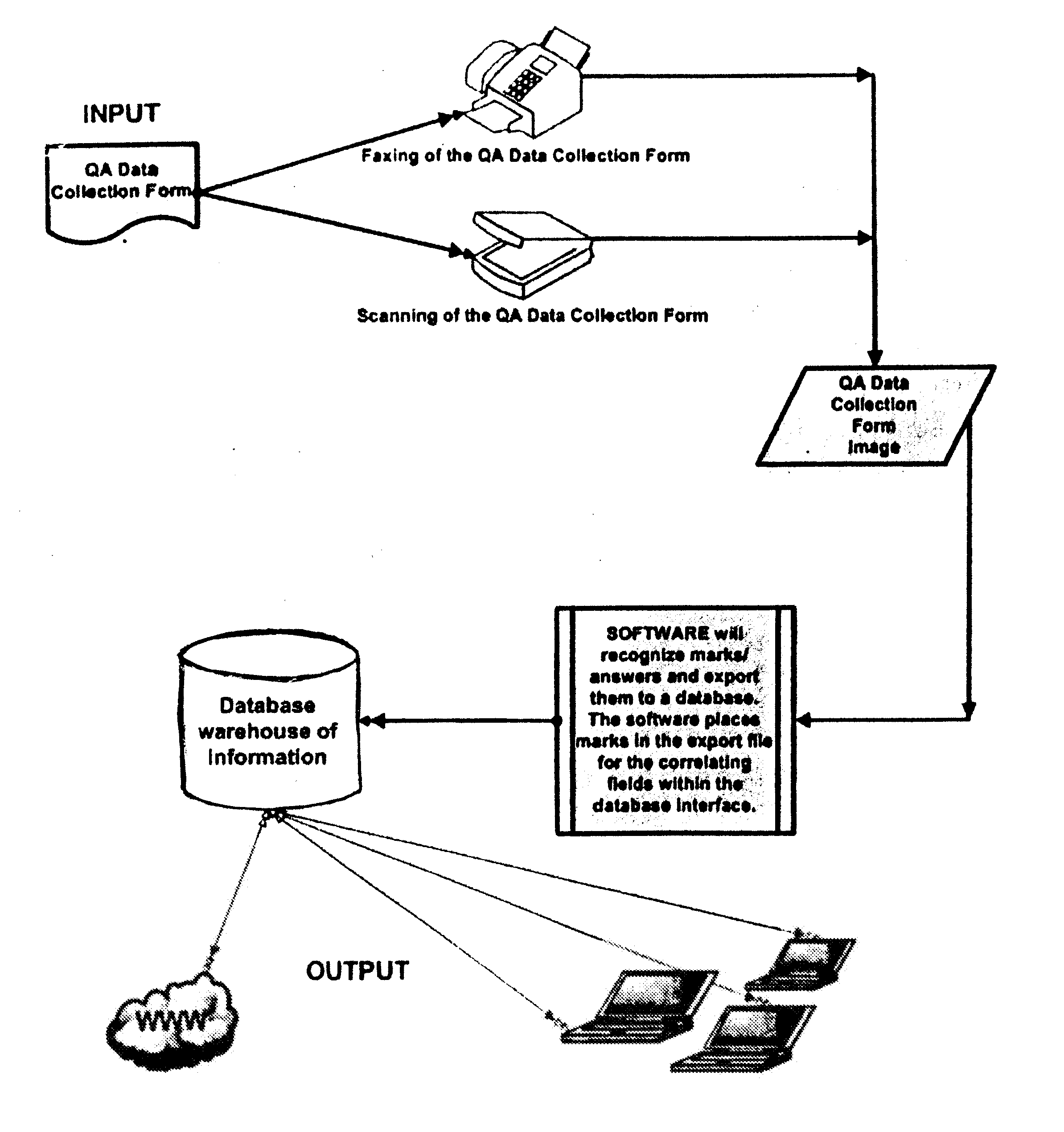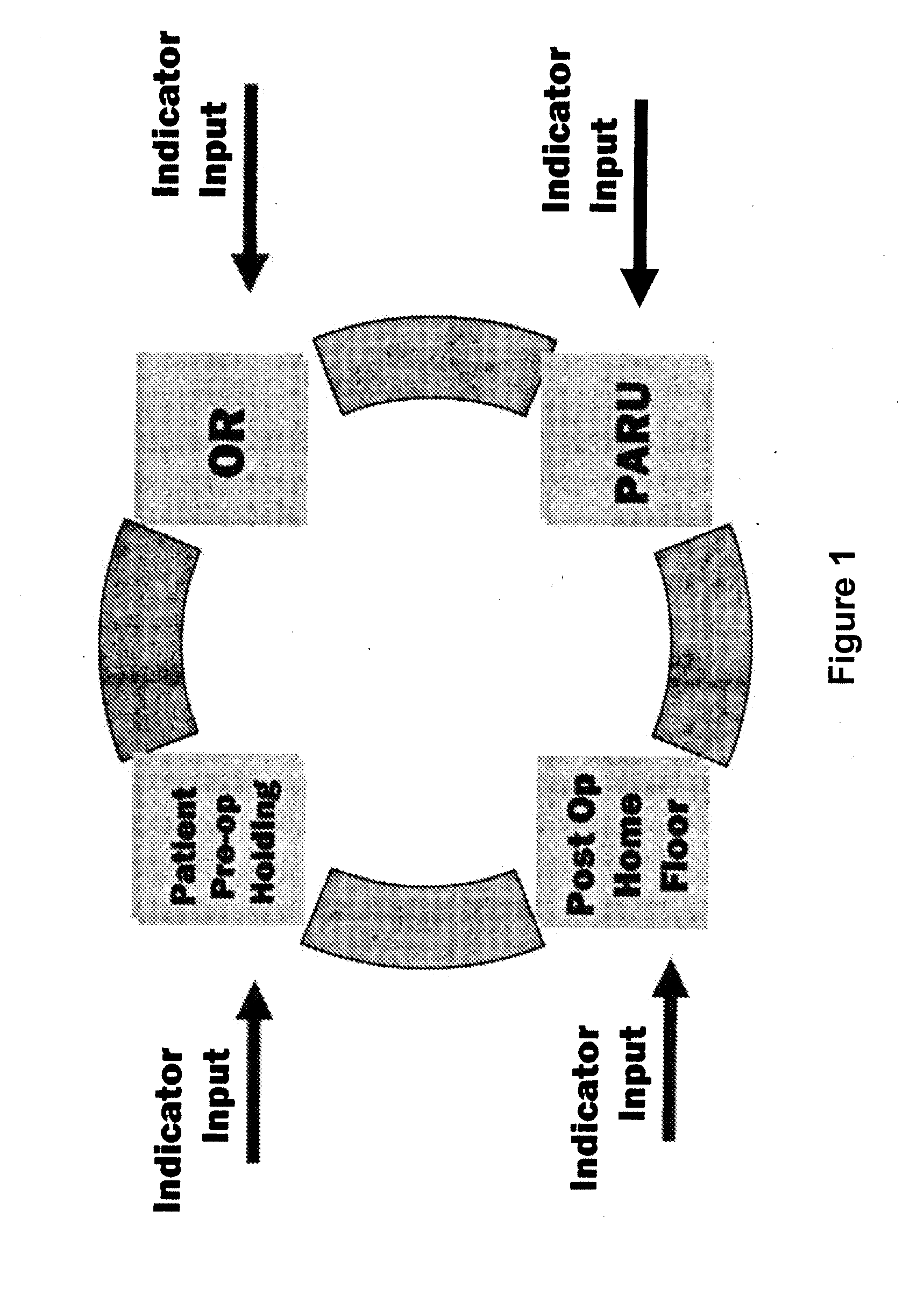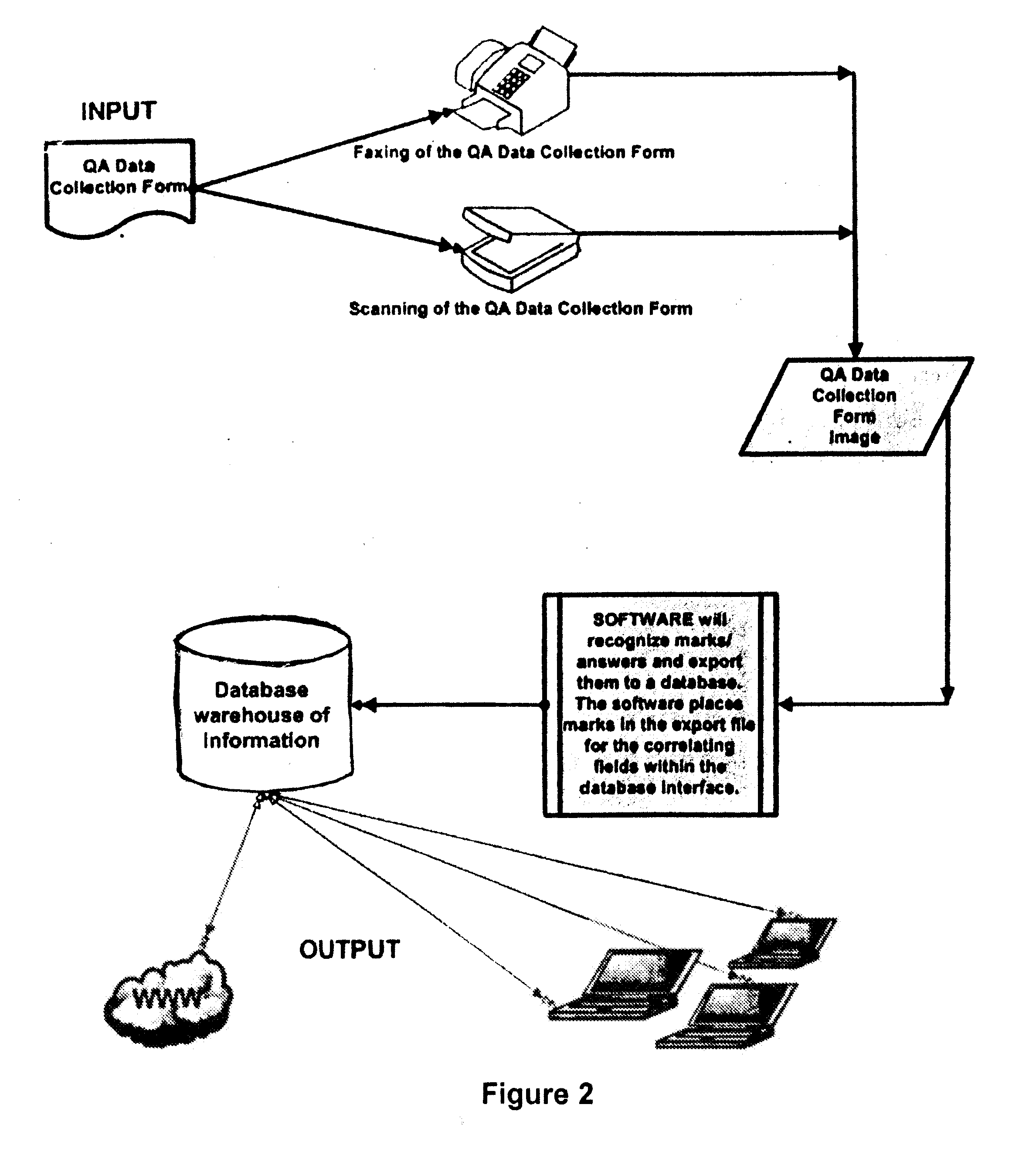Method and system for improving the quality of service and care in a healthcare organization
a healthcare organization and quality improvement technology, applied in the field of quality improvement, can solve the problems of multiple incidences of poor quality, affecting the patient's safety and satisfaction with the services performed, and time delay between the incidence of poor quality, so as to improve the quality of healthcare procedures
- Summary
- Abstract
- Description
- Claims
- Application Information
AI Technical Summary
Benefits of technology
Problems solved by technology
Method used
Image
Examples
Embodiment Construction
[0021]The invention relates to a method and system for improving the quality of healthcare. More specifically, the invention relates to a method and system for improving the quality of the procedures of a healthcare organization by providing timely and relevant feedback. In another embodiment, the invention relates to a method of determining a pay for performance valuation based on the quality provided by a healthcare organization.
[0022]The terminology used herein is for the purpose of describing particular embodiments only and is not intended to be limiting of the invention. As used herein, the term “and / or” includes any and all combinations of one or more of the associated listed items. As used herein, the singular forms “a,”“an,” and “the” are intended to include the plural forms as well as the singular forms, unless the context clearly indicates otherwise. It will be further understood that the terms “comprises” and / or “comprising,” when used in this specification, specify the p...
PUM
 Login to View More
Login to View More Abstract
Description
Claims
Application Information
 Login to View More
Login to View More - R&D
- Intellectual Property
- Life Sciences
- Materials
- Tech Scout
- Unparalleled Data Quality
- Higher Quality Content
- 60% Fewer Hallucinations
Browse by: Latest US Patents, China's latest patents, Technical Efficacy Thesaurus, Application Domain, Technology Topic, Popular Technical Reports.
© 2025 PatSnap. All rights reserved.Legal|Privacy policy|Modern Slavery Act Transparency Statement|Sitemap|About US| Contact US: help@patsnap.com



